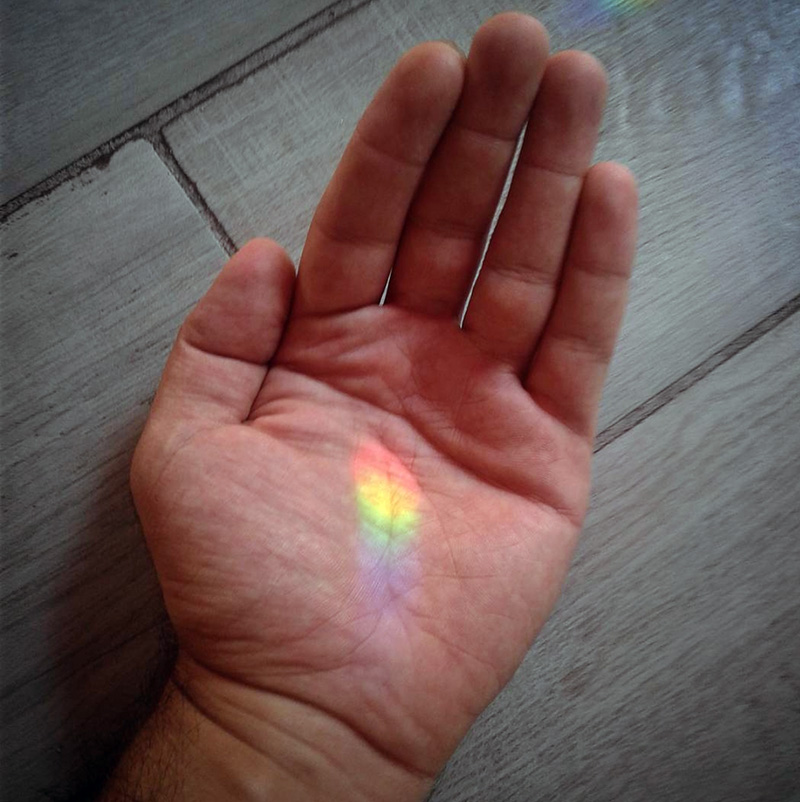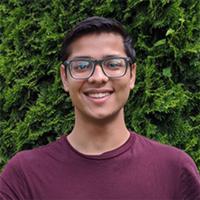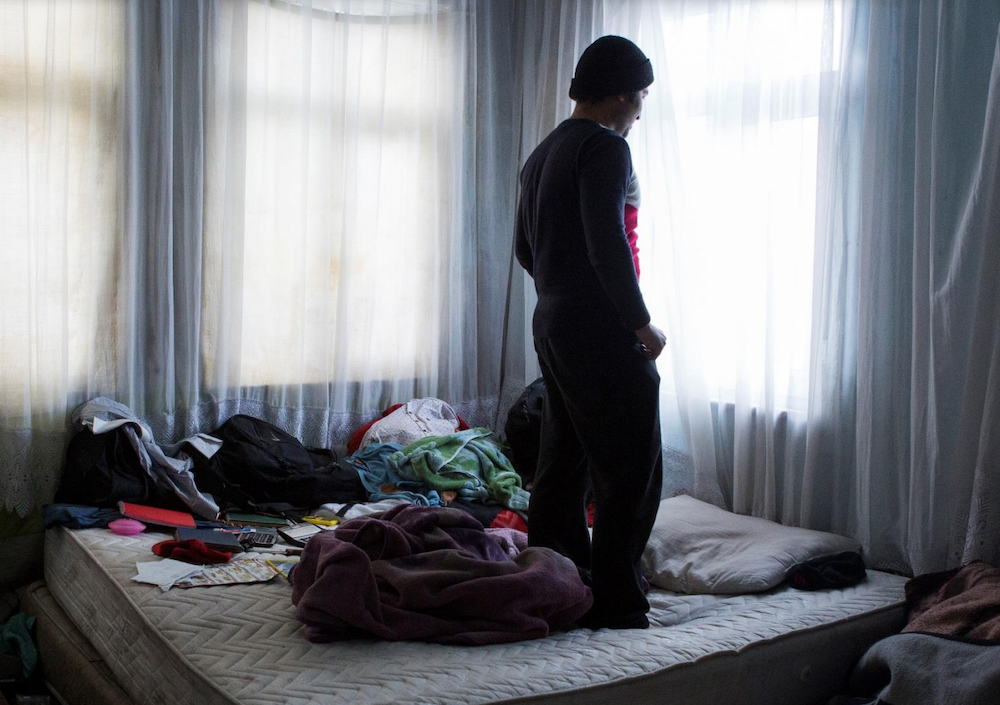Six years ago, after fleeing Iran to escape persecution for being gay, Amir found a temporary home in Turkey, where he began applying for refugee status. Many friends he made in Turkey (his “new family,” as he calls them) moved to Canada. He badly wanted to do the same.
But because of the pandemic, Amir still hasn’t made it here. It’s never been simple for Muslim LGBTQ+ refugees in Turkey to gain the chance to start a new life in Canada, but COVID-19 has dimmed those prospects, and Amir is one of many wondering when the window will again widen.
Amir, who requested a pseudonym for his safety, connected with The Tyee from Turkey over Zoom. Sayan, a close friend of Amir’s, assisted with translation. Sayan also requested a pseudonym to protect Amir’s identity by association.
Amir shared the winding path that has led to, for now at least, a heart-wrenching dead end. It started five years ago, when, having arrived in Turkey he applied to the United Nations High Commissioner for Refugees for refugee status. It was granted, and Amir was assigned a resettlement country: Canada.
But Amir’s application vied with thousands by Syrians fleeing their war-torn nation. “After almost two years of wait, UNHCR told me that the Canadian embassy is facing an overload of Syrian cases, too many to process. It happened to many of my friends as well.”
So, Amir applied to the United States for resettlement, and made it through a first interview. It would be his last, because in 2017 Donald Trump imposed a travel ban on six Muslim-majority countries including Iran, which blocked refugees coming to the U.S.
Last year, Amir resumed his effort to be resettled in Canada.
He would need a sponsor, so he wrote to many NGOs and charities. When the Toronto-based Marjan Foundation accepted his application, and he was accepted as a refugee by the Canadian government, Amir was filled with hope. He passed an interview with the Canadian embassy in Turkey scheduled in March.
“After giving my medical exam and submitting all the paperwork, I was so relieved. They said after the next six months, I will be accepted to Canada. It was the most precious gift that anyone could give me.”
Later that week, however, his sponsor called to give him bad news. “We might be facing indefinite delay due to the pandemic.” Two weeks after Amir received approval from Canada, Turkey entered into quarantine and imposed travel restrictions. Ever since, Amir has lived in limbo, invited to come to Canada, but not granted a visa. The paperwork has been stalled for eight months.
Amir’s frustrations are shared by many. He’s seen friends ready themselves to leave for new homes in Canada, only to find their flights getting cancelled at the last minute. “We are all waiting.”
The wait is costly. To survive, Amir, like many who escape to Turkey, must live in the shadows. The cafés and restaurants that have employed him without a work permit have been hard hit by the pandemic.
“I don’t have any insurance. And I have to manage my livelihood on risky terms.”
In Turkey, Amir faces discrimination for his sexuality.
Outside the restaurant where Amir worked, one evening he happened upon a friend in trouble.
“I was finishing my shift when I saw this group of men teasing my friend and calling him different names for being ‘effeminate,’ and they started beating him up. When I tried to rescue him, they beat us both.”
The next day, Amir was fired from the restaurant, he said.
“Unfortunately, in Turkey, one doesn’t have many rights. Unlike in Canada, even if they rape you, you can’t complain because you’re an LGBT person,” he said.
The longer the clock ticks for Amir, the higher the risk he might not ever make it to Canada and instead find himself back in Iran, explains Arsham Parsi of the Toronto-based International Railroad for Queer Refugees. In Turkey, he says, some refugees risk deportation if their immigration efforts stall. Given that in Iran one can be legally executed for being gay, Parsi says speeding the immigration process is “a matter of life and death for many.”
In 2019, Parsi’s organization processed 47 sponsorship applications from LGBTQ+ individuals. Only three have actually made it to Canada.

Parsi has pressed Immigration, Refugees and Citizenship Canada for updates on the outstanding applications, but says he keeps getting automated messages providing no new information.
Béatrice Fénelon, spokesperson at IRCC, told The Tyee that her department is still working on advancing the files of some refugees in Turkey and elsewhere. “With the support of our international partners, who have recently started to resume operations abroad, we continue to identify and prioritize the most urgent cases,” she said.
According to the IRCC, between March 18 and Aug. 31 of this year, Canada has welcomed more than 1,000 resettled refugees from around the world.
But due to the pandemic, a total of 2,612 refugees are still waiting to come to Canada. These are the individuals who have been accepted for resettlement, but are yet to travel. Of that total number, including Amir, 1,466 privately sponsored refugees are yet to arrive.
Fénelon reminds that “Canada has put in place temporary travel restrictions in order to help stem the spread of COVID-19.” As have many other nations. As a result, a lot of refugees approved to come here are stuck because COVID-19 measures have restricted movement within borders, blocked exit permits, closed airports and limited departing flights.
IRCC has begun facilitating resettlement from certain countries where travel conditions allow, she noted.
Parsi says the pandemic has thrown barriers in the way of the International Railroad for Queer Refugees, as well, including higher costs and uncertainty.
“We don’t know what’s going to happen,” Amir says. “Our life here has become a zelzele,” the Farsi word for earthquake.
Amir, too, feels shaken.
“I am in one of those hopeful but hopeless moments in life,” he says. “I wake up and check the website for updates and again get disappointed. But I stay optimistic, though the reasons to be so are very scarce.” ![]()
Read more: Rights + Justice, Gender + Sexuality
















Tyee Commenting Guidelines
Comments that violate guidelines risk being deleted, and violations may result in a temporary or permanent user ban. Maintain the spirit of good conversation to stay in the discussion.
*Please note The Tyee is not a forum for spreading misinformation about COVID-19, denying its existence or minimizing its risk to public health.
Do:
Do not: